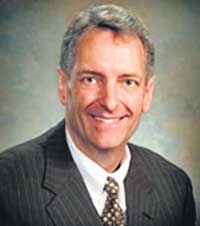
Organisations that amass talent will succeed- global specialistSri Lankan HR expert Dinesh Weerakkody recently interviewed the world’s most renowned and sought after HR Guru, Professor Dave Ulrich, who is scheduled to address the Sri Lankan HR National Conference live via satellite on June 3. What are some of the HR issues facing global organizations today and more importantly in the future? The HR issues facing companies align with business issues: globalization, technological innovation, and pace of change, customer expectations, demographics, regulatory environment and so forth. “HR” is the management of human capital and organization capability so that companies can respond to these business issues.
What roles will HR heads have and what skills will they need to survive in the next decade? We have identified five roles that HR professionals may play. These roles are both the identity of the HR professional and the outcome of fulfilling this identity:
What do you mean by talentship; what does this new decision science offer to business? Talentship is a term used by my colleague John Boudreau to talk about gaining rigour and science to the study of talent. This is an outstanding idea and direction. It is half of what good HR is about; the other half is building stronger organizations by being equally rigourous about organization capabilities. Any management tool or concept ill conceived or applied will not work. But, when performance appraisals are well defined and implemented, they help employees know what is expected of them and what they get in return for their contribution. They also help managers turn visions or strategies into behaviours. What are companies in the US doing to uncover distinctive talent contributions and allocate talent more effectively to create value? We have seen three dimensions of talent: The first dimension is competence: making sure that the company has the right people with the right skills in the right place at the right time. Employee competencies should be connected to customer expectations. They should be regularly assessed to define gaps. They may be increased through smart investments in training, experience, and lifetime learning. They may affect the firms’ reputation both inside and outside the company. The second dimension is commitment: working to gain employee engagement or discretionary energy. Firms know that committed employees put in their time and energy for company success. This commitment results in an employee value proposition where employees who contribute more receive more back. Third dimension is contribution: ensuring that employees find meaning and purpose in their work. Organizations have become settings where personal needs are met … building contribution means helping employees find identity, purpose, relationships, and meaning through the work setting. How do companies ensure that learning and development initiatives are aligned with the organization’s needs and continue to be fit for purpose? A simple test is to ask a targeted or key customer or investor to look at a learning curriculum and ask: if our employees learn and implement what we teach, would you be more inclined to buy (products or stock) from our company? At a more detailed level, leading firms are including customers and investors in design and deliver of learning experiences. How much of HR should and can be outsourced? HR is being split in half. The legacy HR work around managing employee transactions like payroll, benefits, and policy administration are being done more efficiently through e-HR and/or outsourcing. This is appropriate since the goal of these transaction activities is to get them done as efficiently as possible. The more strategy HR work of aligning people and organization to business goals can and should not be outsourced. These are differentiators that make the firm successful in a given market. What makes an organization a place that people would like to work? We have found that people have universal needs and organizations often become the setting for meeting these needs. These needs include:
When managers (with HR) build practices and processes to satisfy these needs, we call that an abundant organization. Employees will not only come to work, but be emotionally and psychologically engaged when these needs are met. Based on your recent research what do CEOs want from HR? We have found two dimensions: talent and organization. Talent deals with competent, committed, and contributing employees. Organization deals with building the capabilities of an organization that enable it to deliver on strategy. We have identified a number of capabilities an organization should identify and deliver: speed, collaboration, learning, leadership, accountability, service, innovation, simplicity, and citizenship. HR professionals can and should do talent and organization audits to diagnose what is being done and then do organization improvement plans to help build more effective organizations. What will the HR profession look like in 10 years? I don’t know. The future is almost impossible to predict with certainty. But, I would assume that talent issues will continue. As we become a knowledge society, organizations that amass talent will be more likely to succeed than those who do not. I would assume that the transaction work of HR will continue to be done more efficiently through outsourcing and e-HR. I would assume that work organizations will become increasingly important in the lives of people as work and life boundaries blur. I would assume HR professionals who connect their work to the business will be active contributors, or what we call in our research credible activists. You will be addressing the Sri Lanakn HR community via satellite? Yes, I look forward to the videoconference with Sri Lanka in a few weeks |
|
||||||
|
||||||
| || Front
Page | News
| Editorial
| Columns
| Sports
| Plus
| Financial
Times | International
| Mirror
| TV
Times | Funday Times || |
| |
Reproduction of articles permitted when used without any alterations to contents and a link to the source page.
|
© Copyright
2008 | Wijeya
Newspapers Ltd.Colombo. Sri Lanka. All Rights Reserved. |
